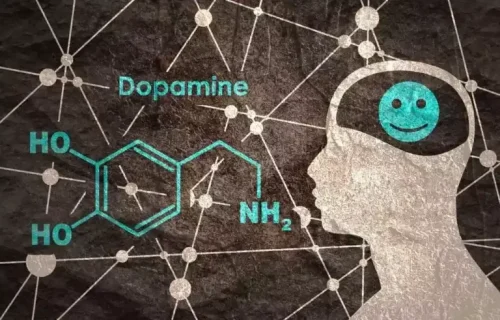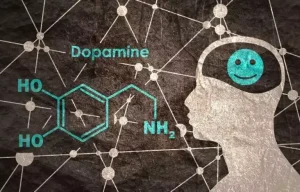
A slightly different finding to the previous study was seen in an investigation conducted by Hoaken and Pihl (2000). The researchers assigned the participants (54 males and 60 females) to compete in a competitive aggression paradigm in an intoxicated or sober state. This suggested that both the women and men can be equally aggressive and alcohol does not seem to play a prominent role in the gender biases in aggression. Alcohol facilitates conflicts with others and increases the potential for violent behavior can alcohol make you aggressive among the drinkers and others (Wieczorek et al., 1990; Mann et al., 2006; Wahlsten et al., 2007). Expressive murders are most often preceded by arguments and altercations and the level of intoxication increases the viciousness of the attack (Karlsson, 1998).
Benefits To Drinking Less Or Quitting Alcohol
However, in order to develop specific treatment programs suitable controlled trials of treatments are needed, comparing specific forms of intervention to standard treatment. Simply said, the researchers believe that the dampening effects on the prefrontal cortex contribute to why intoxicated players become more biased toward hostile cues and care less about social etiquette. As with any study, more research is needed, but these MRI studies help create a clearer idea of what specifically induces aggression. One study found that chronic alcohol use decreases the function in the prefrontal cortex, which plays a key role in impulse control. To date, very few studies have tested the gender difference hypothesis using both the male and female subjects.
Managing adult ADHD: Comprehensive study compares stimulants, atomoxetine and non-pharmacological therapies
Alcohol may lead the same person to feel happy one day and enraged the next. The reason for these different effects is now better understood and may be the key to preventing alcohol from causing aggression. At Priory, our residential alcohol addiction treatment programmes have been specifically designed to help you to overcome your dependence on alcohol and get back on track. We offer a medically assisted alcohol detox, where we can help you to manage your withdrawal symptoms as you stop drinking, as well as intensive addiction therapy https://ecosoberhouse.com/ to help you change your behaviours. Alcohol impairs your judgement, decision making and problem solving abilities, due to affecting the chemicals in your brain.
- According to Alcohol Myopia Theory, a drunk person should focus predominantly on those inhibitory cues and, as a result, be less aggressive.
- Peter Giancola, a professor of psychology at the University of Kentucky, co-authored the paper with Bushman and led the experiments used in the OSU study which support Bushman’s argument.
- Alcohol works by lowering inhibitions, which means those latent feelings of irritability can quickly escalate into full-blown rage.
- Instead, they may zoom in on a particularly small thing and have an overly aggressive response (2).
- This indicated that alcohol-induced aggression affects both the genders in different ways, suggesting that men are likely to respond in a direct and indirect manner, whereas women exhibit aggression in an indirect manner.
Reduced inhibitions and impulse control

Alcohol consumption may also lead to a rage response because of expectations, according to researchers (1). For example, if a person goes into a drinking experience with the expectation of alcohol helping them pick a fight with a partner later, that’s then likely to happen. A small 2015 study published in Translational Psychology investigated the role of this variation in impulsive and aggressive behavior while intoxicated (10). In summary, heavy drinking or chronic drinking alters brain chemistry in the short and long term. For these reasons, some people may exhibit nervousness, outbursts, aggression, and even violence while intoxicated or during withdrawal.

Impaired cognitive functioning

Among the many studied physiological and behavioral effects of alcohol is disinhibition, or reduced control over impulses or urges after intoxication. Disinhibition can make you unable to suppress or change an act of aggression that is not appropriate for the situation you’re in. In view of the high prevalence of alcohol-related violence, scientists and clinicians have undertaken numerous attempts to analyze this problematic relationship and to clarify underlying mechanisms and processes.
A national study of 16,698 inmates found that alcohol had a stronger role in violent offending such as homicide, physical assaults, and sexual assaults compared to offenses such as burglary and robbery. In this study, the majority of the respondents claimed to have been under the influence/intoxication of substance(s) such as alcohol during the commission of murder (Felson and Staff, 2010). Another research study, conducted in Finland, took an approach that considered the genetics of individuals and how their makeup may make them more prone to aggression when under the influence of alcohol. These researchers questioned 156 participants on their alcohol history and personality traits. The study found that participants who had a certain genetic mutation called HTR2B Q20 were more likely to act out aggressively, lash out at others, and become mean when they drink. Although this study was eye-opening, researchers still do not know everything about how genes can influence the way that people react to alcohol.
- It’s like the brain’s peacekeeping force is suddenly MIA, allowing a mob of rowdy emotions to take over.
- Results showed that for those drinking alcohol, the alcohol increased the level at which the shocks became painful to them.
- Prior to beginning the study, all participants were screened for past or present drug, alcohol, and psychiatric-related problems.
- At the same time, alcohol hinders the neurotransmitter glutamine, which has a stimulating effect.
- This isn’t because men are inherently more aggressive—it’s due to societal expectations and conditioning.
Ready for Less Anger and More Peace?

These days, people who misuse alcohol can enroll in various treatment programs, whether you choose the 12-step approach or decide to enter residential treatment. If you’re looking for help getting started, it’s wise to speak with your physician first. It’s sometimes easier for angry people to become aggressive when they’re inebriated.

Disruption to emotional regulation
Specifically, they exhibited a reduced capacity to detect sadness and fear and Sober living house a reduced tendency towards seeing happiness. While the study did not support a significant difference between groups high and low in anger, these results support the notion that such impairment in facial recognition may contribute to aggressive responding. Specifically, it found that problematic drinkers may be more likely to attend to aggressogenic stimuli while intoxicated, and that is, they were more likely to experience certain cues as aggressive.
Typical Risk Factors for Alcohol-Related Aggression
There’s a difference in safety between someone who is expressing anger verbally and one who has become physically aggressive. Anger expression may also be confused with aggression or hostility, two consequences of drinking commonly cited in research. The link between alcohol and aggression has been established since the 1990s, and a World Health Organization (WHO) committee in the 2000s noted aggression is more closely linked to alcohol use than any other psychoactive substance.
It slows down the function of the central nervous system which makes us feel relaxed and uninhibited. However, as blood alcohol concentration increases, one might experience more negative effects such as mood swings or aggression. Therefore it’s crucial to remember that terms like ‘angry drunk’ are generalizations – they help us understand certain behaviors but don’t define an individual entirely. If a health professional has diagnosed you with anger management problems, you may find these get worse when you drink. Alongside quitting alcohol, you could benefit from attending an anger management support group.

